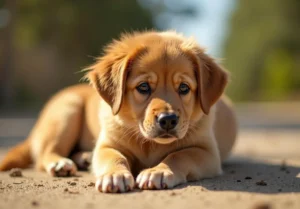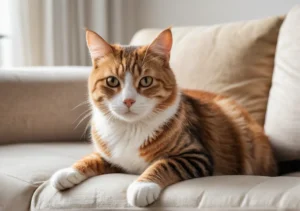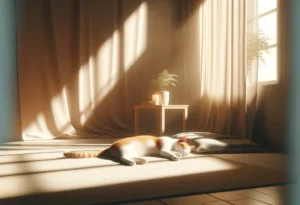Cats always seem to be in a perpetual state of exhaustion, constantly napping in the sun or sprawled out across the couch. So why are cats so tired all the time?
Natural Sleep Patterns
Cats are natural-born snoozers, with unique sleep patterns that are quite different from humans. While we humans typically get our sleep in one long stretch at night, cats are true masters of catnapping, taking several short naps throughout the day to meet their sleep needs. These feline power naps are essential for them to recharge and restore energy levels, allowing them to be ready for action at a moment’s notice. Unlike humans, who need around 7-9 hours of sleep per day, cats can sleep for up to 15 hours on average! So, it’s no wonder they seem to be tired all the time – they’re just following their natural instincts to get the rest they need.
Energy Expenditure
One reason why cats are constantly in need of a catnap is their high energy expenditure. Cats are natural hunters, and even though they might not be chasing down prey in your living room, they still have that hunting instinct that keeps them active and on the move. This constant need for activity and play means that cats burn through energy quickly, leading to the need for frequent rest breaks to recharge their batteries. So, next time you see your cat curled up in yet another nap, just remember – they’re not lazy, they’re just conserving energy for their next adventure!
- Keep Them Active: Providing your cat with plenty of toys and opportunities for play can help them burn off excess energy, reducing their need for constant napping.
- Create a Cozy Environment: Make sure your cat has a comfortable and inviting space to rest in, with warm bedding and a quiet spot away from any noise or distractions.
- Monitor Their Health: If you notice a sudden change in your cat’s energy levels or sleeping patterns, it’s essential to consult with your veterinarian to rule out any underlying health issues that could be causing fatigue.
By understanding the natural sleep patterns and high energy expenditure of cats, you can ensure that your feline friend gets the rest they need to stay happy and healthy.
Hunting Instincts
Cats’ natural hunting instincts play a significant role in their energy levels and need for sleep. Despite domestication, cats still retain the instincts of their wild ancestors, who spent hours hunting for food. This innate drive to stalk and pounce makes them expel bursts of energy when playing or chasing toys, leading to periods of rest and sleep to recharge. So, if your cat seems tired all the time, their hunting instincts might be the culprit.
Temperature Regulation
Cats are known for their ability to regulate body temperature efficiently, which can impact their sleep patterns. Unlike humans who sweat to cool down, cats rely on grooming and lying in cool areas to maintain their ideal body temperature. As a result, they tend to conserve energy during the hottest parts of the day and become more active during cooler periods. This unique temperature regulation process can make cats appear tired as they adjust their activity levels to stay comfortable and cool.
Additional Insight:
- Sunbeam Seekers: Cats love basking in the sun to absorb warmth, which can also contribute to their tiredness. The comforting heat of a sunbeam can induce relaxation and drowsiness in cats, prompting them to curl up and take a snooze. So, if your cat is constantly seeking out sunny spots, don’t be surprised if they seem extra sleepy.
Age and Activity Level
Cats, like humans, need rest to recharge and stay healthy. A cat’s age and activity level play a significant role in determining how much sleep they need. Kittens and young cats tend to have higher energy levels and may play more actively, requiring more rest to recover. On the other hand, senior cats or those with lower activity levels may also sleep more to conserve energy. It’s essential to consider your cat’s stage in life and adjust their sleep environment accordingly to ensure they get the rest they need.
Key Points:
- Age: Kittens and young cats may need more sleep to recover from their playful antics, while senior cats may sleep more due to reduced activity levels.
- Activity Level: Cats with higher energy levels may require more rest to recharge, while less active cats may nap more frequently.
Environmental Factors
The environment in which a cat lives can greatly influence their sleep habits. Factors like noise levels, household routines, and the presence of other pets or people can impact how much rest a cat gets. Cats are sensitive to disturbances, so creating a quiet and comfortable sleeping area for your feline friend can help promote better sleep. Additionally, maintaining a consistent routine and providing opportunities for play and exercise during the day can help your cat establish healthy sleep patterns.
When creating a sleep-friendly environment for your cat, consider the following factors:
- Noise Levels: Keep loud noises to a minimum, especially during your cat’s nap times.
- Household Routines: Establish a consistent schedule for feeding, playtime, and rest to help regulate your cat’s sleep.
- Other Pets or People: Ensure that your cat has a quiet and safe space to retreat to for uninterrupted sleep.
Remember, a well-rested cat is a happy and healthy cat!
Medical Conditions
If your cat seems more tired than usual, it might be due to an underlying medical condition. Look out for symptoms such as weight loss, lethargy, or changes in appetite. Common medical conditions that can cause excessive fatigue in cats include hyperthyroidism, kidney disease, or diabetes. If you notice any concerning signs, it’s crucial to consult a veterinarian promptly. They can diagnose and treat these conditions to help your cat regain their energy levels. Don’t ignore signs of fatigue in your feline friend; their health should always be a top priority.
Play and Mental Stimulation
Give your cat the play and mental stimulation they need to stay alert and active. Engage them in interactive toys, puzzles, or regular play sessions to keep their mind sharp and prevent excessive tiredness. Cats are natural hunters and stimulating their instincts through play can help them maintain their energy levels. Ensure they have access to toys, scratching posts, and enrichment activities to keep them mentally engaged. A happy and mentally stimulated cat is less likely to be tired all the time. Invest time in play and bonding with your feline companion for a happier and more active pet.
Additional Unique Angle:
Interactive feeding puzzles can also provide mental stimulation for your cat while they eat. This can help prevent boredom and boost their cognitive skills in a fun and engaging way. Try incorporating feeding puzzles into their routine to keep them mentally sharp and motivated.
Interesting Facts
Did you know that cats spend an average of 15 hours a day sleeping? That’s right, our feline friends are truly nap enthusiasts! Despite the ample rest, cats may still appear tired due to their natural sleep patterns. Cats are crepuscular animals, meaning they are most active during dawn and dusk. So don’t be surprised if your cat seems most energetic during those times of day while lounging around the rest of the day.
Interactive Toys and Games
- Feather Wands: Cats are natural hunters, and interactive toys like feather wands can tap into their predatory instincts, keeping them mentally and physically engaged.
- Puzzle Feeders: These toys challenge your cat to work for their food, stimulating their minds and providing necessary exercise.
- Interactive Laser Pointers: Cats love to chase the elusive red dot of laser pointers, providing a fun and active playtime for your furry companion.
- Catnip Toys: Catnip can provide a burst of energy and playfulness in cats, giving them a much-needed boost throughout the day.
- Treat Balls: Fill these balls with treats, encouraging your cat to bat them around and stay active. Don’t underestimate the power of playtime in keeping your cat alert and lively throughout the day!
Alex, a passionate animal lover, has experience in training and understanding animal behavior. As a proud pet parent to two dogs and three cats, he founded AnimalReport.net to share insights from animal experts and expand his knowledge of the animal kingdom.




